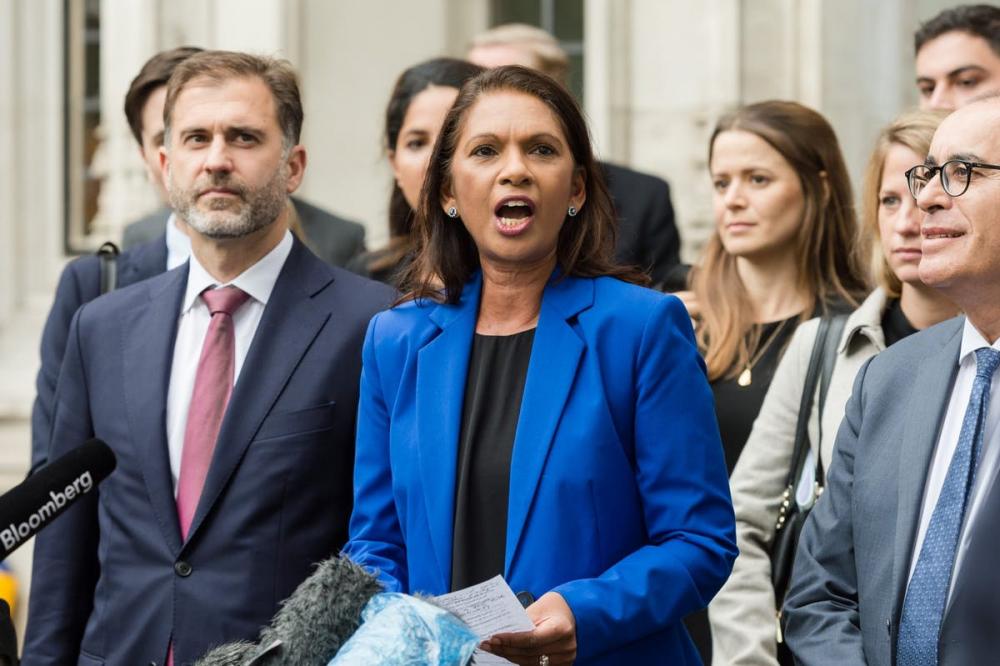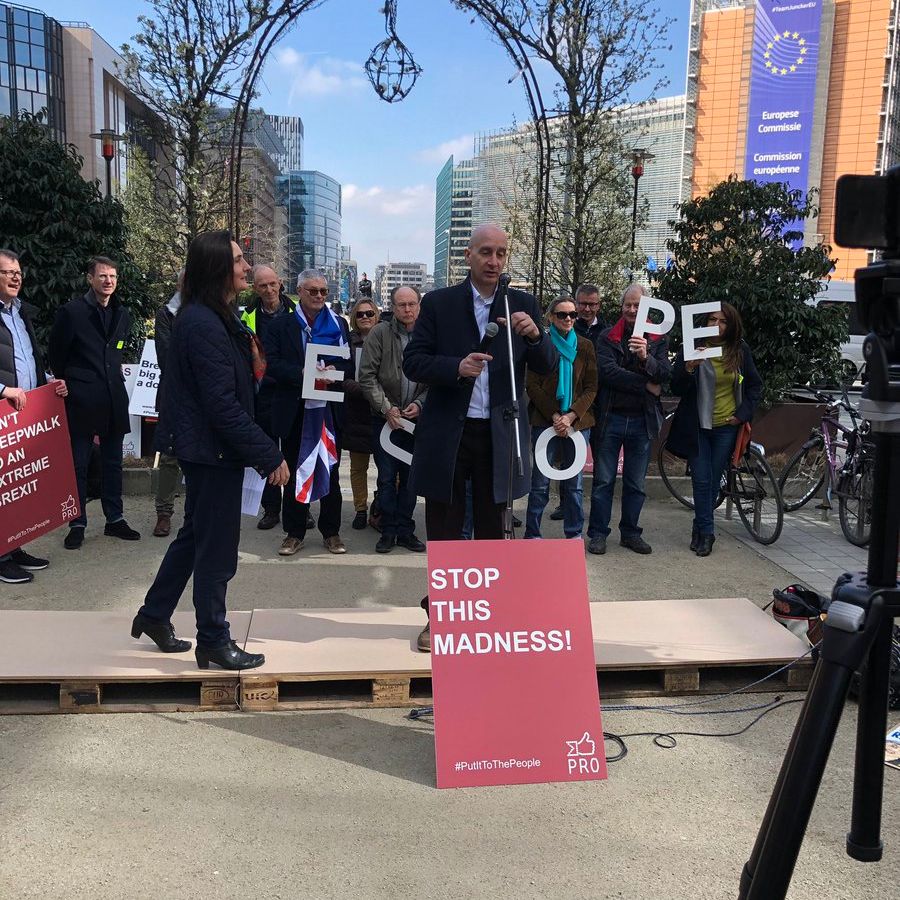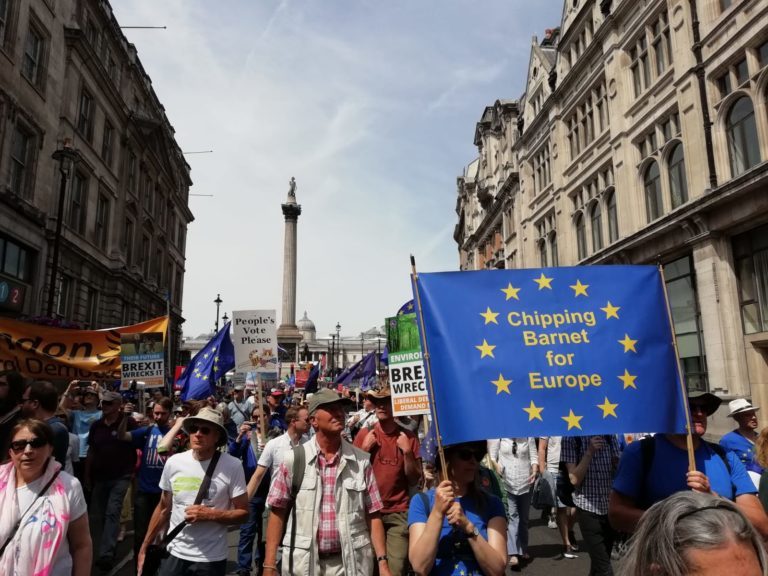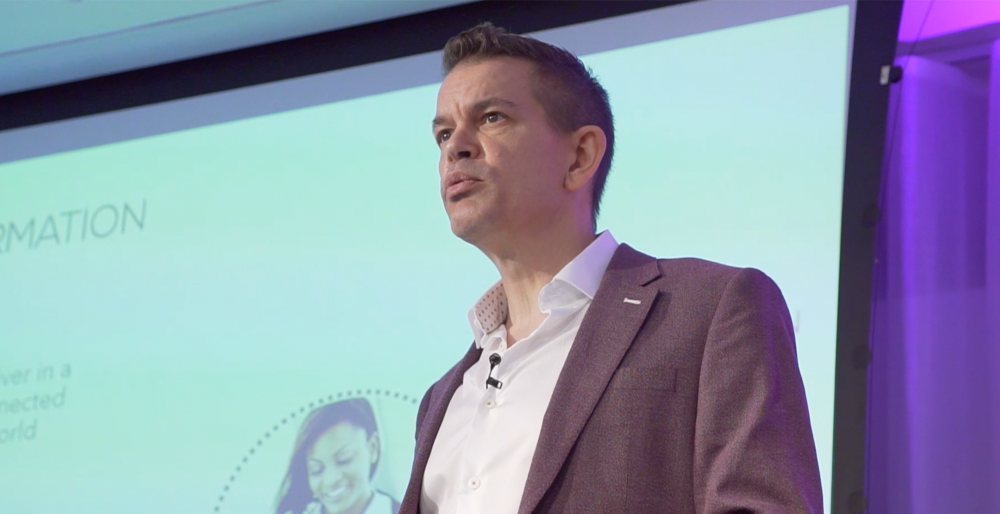Brexitcast: Parliament Has a Duty To Represent The People, What Are The Government Doing?
Political knockabouts, judicial control, mellifluous voices, constitutional coup - call it what you will over proroging Parliament. But these Brexit machinations aren’t going away anytime soon. That is, unless the whole thing is cancelled once and for all. Frankly, one wonders how the UK ever got to this point after three years since a Referendum on continued European Union (EU) membership.
Let’s face it, undoing around 46 years of being in the EU (and the European Communities since 1 January 1973, when the UK joined along with Denmark and the Republic of Ireland was never going to be a stroll in the park.
Now there is more chaos, turmoil and confusion with the Supreme Court deciding by a unanimous decision by the land’s top judges - no less than by 11 to nil - that proroging Parliament was unlawful. It’s starting to be funny, although the ramifications are unlikely to be too clever for the economy, the Pound and morale of the country.
And, one could forgive those that voted to ‘Leave’ that maybe - just maybe - they would want to revisit their voting decision cast at the ballot on June 2016.
Now while Gina Miller, the business woman and Remain campaigner who brought the case with a legal team at Mischon de Reya in London with Lord Pannick QC, one of the UK's most highly regarded advocates and rated by the Legal 500 in 2015 as “the best advocate of his generation”, said the decision to initiate proceedings had “nothing to do with Brexit”, it has certainly thrown a spanner in the works.
By way of background, Lord Pannick has appeared in around 100 cases in the Appellate Committee of the House of Lords (prior to it being replaced by the new Supreme Court), over twenty cases in the Supreme Court since its creation back in 2009, in excess of 25 cases in the European Court of Justice in Luxembourg and over 30 cases in the European Court of Human Rights in Strasbourg.
Some have said that the Supreme Court’s ruling over proroging Parliament was taken by a “few academics”. Perhaps those that uttered that sentiment also think they were all Remainers?!
Britain was set initially set be to be leaving the European Union (EU) on 29 March this year as negotiations hit a proverbial brick wall and an extension was granted to the end of October.
But with so many twists and turns - more probably than a Monaco Grand Prix - one wonders if the country will ever in fact leave. What happens then…panic on the streets or some such?
I should point out here that I voted to ‘Remain’, yet the longer this saga goes on unresolved the worse things get. We should nevertheless respect the outcome of the Referendum vote, unless there the whole process to get a clean Brexit proves insurmountable, becomes bogged down, wreaks too much damage or simply takes too long. This is starting to become clear.
As one British expat based in Slovakia in the fintech sector put it to me recently this September: “We have had a referendum that was badly constructed. They - the Brexiteers have had three years to implement their Brexit. Unable to do so they have even shown they are actually separate factions. Were their separate factions to have been on the ballot, Remain would have won regarding those three years. Those saying that cancelling Article 50 is wrong are not thinking it through in terms of our existing political system.”
He added: “If a government is elected on a platform, but does not succeed during its term, they should not get forever to do it. And, frankly, we have had governments that have lasted less time than they've had to implement Brexit. Meanwhile the UK is being destroyed utterly as a business partner and the economy being wrecked in a way that it will be very hard to recover from - since there will be little trust, respect or credibility left without unity and consensus.”
From other quarters, Dan Ciuriak, a Canadian economist from Ottawa who produced a Brexit impact assessment for the EU think-tank Open Europe (See: www.openeurope.org.uk) well before the referendum on EU membership, with poignant satire put it to me this summer: “There is no exit from Brexit. This is a ‘Dark Mirror’ episode in which everyone gets locked into perpetual hell... and episode two is coming next.”
Ciuriak, a co-winner of the first prize in the McKinsey Global Institute MGI ‘Opportunity for Europe’ Prize Essay competition on how to unlock growth in Europe, has served as deputy to the Chair of the APEC Economic Committee and Finance Counsellor at Canada's Embassy in Germany, so hardly a lightweight. His analysis of the GDP impact of Brexit on the UK and across industrial sectors remains to date one of the best analyses I yet have seen.
Elsewhere, Dr John Bates, a Top 50 fintech pioneer and CEO of the U.K.-headquartered Eggplant (majority owned by Carlyle’s European technology fund) who shuttles between the UK and the US, even believes that Brexit “far more challenging” than Y2K. Of course others out there may disagree.
Commenting recently on Brexit's potential impact at a digital industry event in London, the disruptive techie asserted: “Brexit is going to be the biggest IT disruption in history. I mean, you thought Y2K was bad. Just start ripping out the interwoven threads of dozens of countries and industrial inter-connectedness...and you start to appreciate the complexity and what we are talking about.”
Cambridge PhD computer science graduate Bates added: “Take tariffs on goods for a moment. Now that must be making company's business models really screwed up what with Brexit on the one hand and President Trump across the Pond on the other - ratcheting up import duties on goods from the EU in to the U.S (e.g. on steel, aluminium, autos).”
“So, for the CEOs of say Audi, BMW or Mercedes, they might be reacting thinking possibly along the lines of ‘Oh my god, Trump has hiked tariffs (c.25%) on German autos imported into the U.S. Meanwhile, one of our biggest markets - the U.K. - we might not have free trade with them.’”
With all these words resonating in my mind, I recalled Lord Adonis, the Labour peer and former Labour cabinet minister under Tony Blair, who spoke at a public meeting earlier this year in February up in North London organized by campaign group Chipping Barnet for EU (see: http://www.chippingbarnetfor.eu/). He asserted there that: “The EU is the greatest international venture for peace, prosperity and freedom in the history of civilization.” While not all will necessarily agree, there have certainly been no major wars in Western Europe since the EU was established. So, as the Chinese proverb goes, be careful what you wish for.
Adonis, who was speaking on a platform alongside Alexandra Bulet, an academic from the London School of Economics who worked on a paper on the political impact of Brexit to the UK, was travelling across the length and breadth of the country to get his message out.
As to whether the plan to leave the EU mounted by the Brexiteers had been a good enough plan, the Labour peer was unequivocal: “No, it was a terrible plan. In fact, there was no plan behind it all…which is the reason we are in the mess we are in today. Frankly, no one had any idea what we should do.” That’s a bit like today after the Supreme Court ruling, no folks?
A Peoples’ Vote?
Turning to how realistic a Peoples’ Vote on the final deal (if we ever get it) was, Adonis said: “It’s very realistic because I don’t think there is another credible option at the moment.” He further went on by saying: “All the promises of three years ago that we were promised of substance - substantial things - have not been realised.”
For example, the £350 million for the NHS per week. Furthermore, he cited all the arguments around ‘Project Fear’ “weren’t supposedly correct” (and why Nissan is shifting more production abroad).
Referring to the ‘Sherlock Holmes Principle’ in terms of a Peoples’ Vote (a second referendum), he remarked: "On the basis that once all the other impossible options have been eliminated you are just left with the improbable, which must be true. And, that is why we’ll end up with a second Referendum.”
He even mentioned arch-Brexiteer Jacob Rees-Mogg, MP for North East Somerset and current Leader of the House of Commons, who has gone on record (in Hansard) saying that he was in favour of a 'Dual Referendum'. Essentially the argument goes that there is a need for vote on the terms of the concrete deal - be it former Prime Minister Theresa May's Withdrawal Agreement or the one Boris Johnson executes (should the current government succeed in that regard).
When people voted three years is was a simple binary choice - 'Yes' or 'No'. It would seem reasonable and logical to have a second vote on the actual terms. Adonis told the audience at Ewen Hall in High Barnet: "You know what I love is Jacob Rees-Mogg's 'Dual Referendum ...that is what we want...and that is why we should have a Peoples' Vote.
He added: "As the people of Northern Ireland rightly found , having a referendum on a concrete proposition is what helps produce a stable and shared consensus view in Northern Ireland." (Note: That agreement was approved by voters across the island of Ireland in two referendums held on 22 May 1998. In Northern Ireland, voters were asked in the 1998 Northern Ireland Good Friday Agreement referendum whether they supported the multi-party agreement).
The Irish ‘Backstop’
In relation to the Irish backstop, of which half of the 500-plus page UK Withdrawal Agreement was taken up by, Adonis noted that this was “very, very complicated”. He said: “It’s an unanswerable problem. The only answer is that either: (a) You waive all the rules inside the UK, which will be an invitation to smuggling; or (b) You have a border down the Irish Sea."
And, as Simon Coveney, the Irish Minister for Foreign Affairs and Trade and Deputy Leader of Fine Gael since June 2017, has stated: “A disorderly Brexit will be lose, lose, lose for Britain, Ireland and the EU.”
What Is the Right Policy on Brexit?
Concluding his speech in Barnet, Adonis asserted that the right policy in the light of the above was: “To stay in the EU. And, as these facts become clearer and we cannot have our cake and eat, people are becoming to realise the impact that Brexit will have on them.” Food for thought. Carpe diem
by Roger Aitken
About the author: Roger is a freelance writer who has contributed to a number of titles over the years including the Financial Times and worked as a Forbes contributor. In 2014 he was awarded a press prize from Czech Tourism on the 25th anniversary of the Velvet Revolution and won a State Street Institutional press prize














